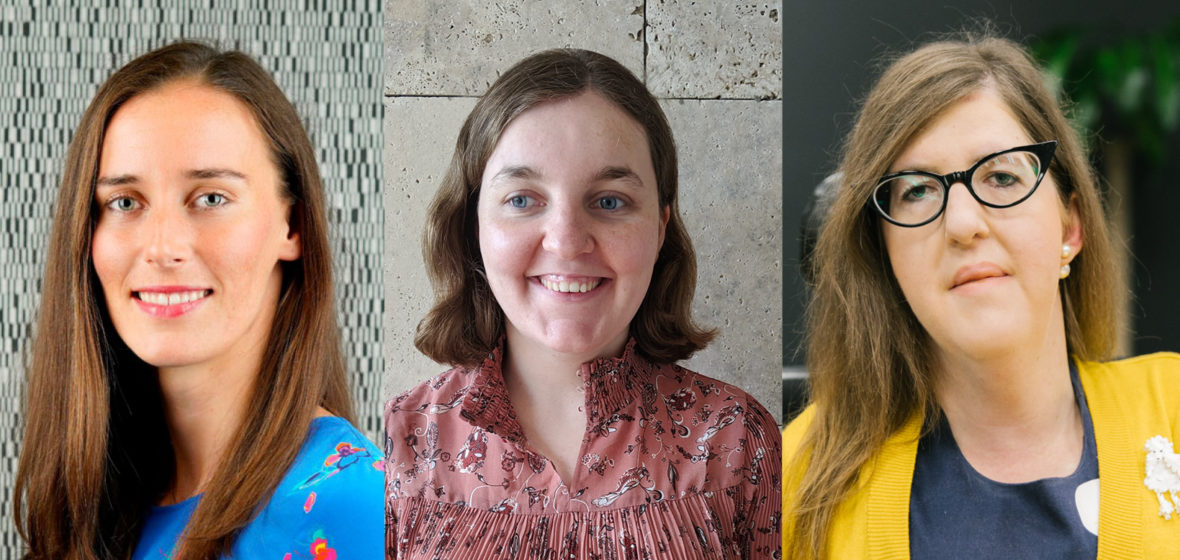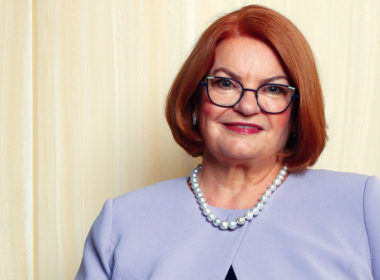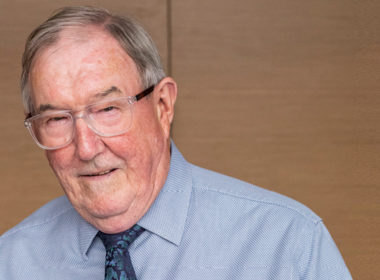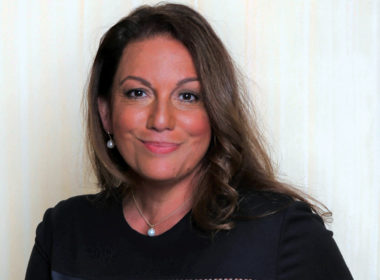After struggling to find organisations supporting lawyers with disability, Ella Alexander, Natalie Wade and Abbey Dalton started their own. The trio formed the Disabled Australian Lawyers Association (DALA) in March this year and already it is a thriving network helping to make the law more accessible and representative. It is a remarkable effort given the three women have never met face-to-face.
Every year, the magic of 3 December – the International Day of People with Disability – blooms for lawyer Natalie Wade. “It’s an incredibly busy time, I love [this day], it’s so fun. I know there are some who say this shouldn’t just be done for a day,” Wade tells LSJ from her Adelaide home office, where it’s just after midday and she’s on her fifth video call of the day. “It’s a bit like the Valentine’s Day argument of ‘you shouldn’t just buy me flowers then’ but I love Valentine’s Day too. Because at least it is a day where we mark out the space in our calendars and in our minds and in our very busy schedules to pause and celebrate the year that was and the year that is to come for disability rights in Australia.”
For Wade and her co-founders of DALA – Ella Alexander and Abbey Dalton – there is plenty to toast. In the days before a virtual lunch chat with LSJ, they have hosted a sell-out online networking event, booked in a host of appearances for 3 December, and fielded calls from firms looking to introduce disability action plans into their workplaces.
It’s been a whirlwind since DALA began as a LinkedIn page in March, after the three connected online through a communal wish to improve disability inclusion in the profession.
“We had the suspicion that there are many more lawyers with disability out there, and we thought “wouldn’t it be great if a disabled lawyers association was a real and happening thing’?” Wade tells.
Alexander, pro bono special counsel at Makinson d’Apice Lawyers in Sydney, says the response has been “absolutely phenomenal”.
“We’ve had this huge excitement among the disabled legal community, from experienced practitioners to law students, but the broader community too. Clearly an organisation like this was a long time coming.”
One in five Australians have disabilities, but only about six per cent of legal practitioners identify as having a disability according to NSW data. Australia ranks 21st out of 29 countries in the OECD for employment participation for people with disability.
DALA has a three-pronged remit: develop a support network for those in the profession with disability, build momentum for the inclusion of lawyers with a disability in the profession, and assist law firms and organisations who wish to implement best practice policies for employing people with disability.
The founders are yet to meet in person due to state border closures. The pandemic is a natural topic of conversation: all three believe the upheavals of COVID-19 resulted in positive changes for lawyers with disability, but the acceleration to dispensing justice digitally has not knocked down every barrier.
Dalton, a graduate lawyer working at the Victorian Government Solicitor’s Office in Melbourne, says the pandemic has meant “we’ve all seen the human side of our colleagues”. “And at the same time, it’s been an opportunity for disabled people to be more open about their needs for flexibility,” she says.
“That’s definitely positive, because going forward, hopefully there will be a shift toward universal design, where disabled people have their needs met in the existing environment without having to actively disclose and request adjustments. This will likely look like a hybrid model. In the past we have been told it’s not feasible to work flexibly, and now we know it absolutely is feasible.”
This transformation, Wade says, compares to the architecture of court buildings that “were built in a day where people with disabilities were institutionalised”. Wade has congenital myopathy and the Supreme Court building in her home state South Australia is still not accessible for those who, like her, use wheelchairs.
“Obviously, it’s still a work in progress. But there’s definitely been a lot of great progress in the courts to make them more accessible. I think the other thing I would say is really promising is the courts showing an understanding of digital accessibility,” Dalton says.
“Practice notes and directions now stipulate court books and affidavits must be filed in a text searchable PDF format and abolish scanned images being filed.
Going forward, hopefully there will be a shift toward universal design, where disabled people have their needs met in the existing environment without having to actively disclose and request adjustments. This will likely look like a hybrid model. In the past we have been told it’s not feasible to work flexibly, and now we know it absolutely is feasible.
“Despite the benefits of flexibility, we still need to be having those conversations about how we can make our digital environments equally accessible.
“Online court and meetings generally can pose barriers for people with hearing impairments, if there’s not adequate captioning or interpreting.”
Getting that first opportunity can be the hardest barrier to scale, and Alexander says making an early career in the law more accessible, such as through now common flexible working models, will result in “much greater representation and inclusion of disabled lawyers in general”.
“I’m really keen for the profession and law students to know it is possible to work flexible part-time hours as a graduate. I don’t think there is much awareness this is even a possibility. I’d really love for more people to know it’s something that can happen, and in my case did happen successfully,” she says.
Alexander, who has an acquired brain injury, has worked flexibly throughout her career, including in summer clerk and graduate positions at a top-tier firm. Last year she was awarded national pro bono lawyer of the year at the Women in Law Awards. Supporting firms with disability inclusion strategies is a critical component of her DALA work and she says, “one of the most important things we have been able to offer as a disability-led association”.
“It can be tough to tackle diversity issues, because you never want to say the wrong thing, you never want to broach the topic in an inappropriate or insensitive way,” Alexander says.
“Various stakeholders in the profession have wanted to have this conversation but haven’t known how talk about disability in a respectful way. [They ask] ‘can you say disabled’? ‘What about person with disability’? ‘Do you have to say diverse ability’? ‘What euphemisms do we have to use’?”
“I guess one message we’re trying to spread is awareness of ableism, which is the view people with disabilities are inferior. Ableist attitudes are very pervasive and are what lead us to think disability is such a bad and shameful thing: that we can’t even say the word out loud, and that all people with disabilities must have these terrible, tragic lives, which simply isn’t the case. It’s not our bodies but rather attitudinal and environmental barriers in society that prevent us from having the same opportunities as our non-disabled peers.
“We’ve had law firms and lawyers approaching us saying that they’d like to give disabled law students and graduates work experience. We are starting to match up students with those opportunities and really hoping that kind of thing will grow in the future.”




